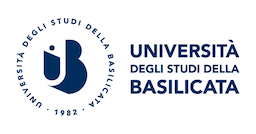
Biotechnologies for Medical, Pharmaceutical, and Veterinary Diagnostics Graduate
Matera Campus, Italy
The Master's Degree Program in Biotechnology for Medical, Pharmaceutical, and Veterinary Diagnostics at the University of Basilicata aims to prepare graduates with high levels of expertise in diagnostics applied to various fields of intervention, such as human and animal health. This program pursues the objectives that characterize the LM-9 program, simultaneously achieving the characteristic professionalism required by the local, national, and international business world.
Graduates of the Master's Degree Program in Biotechnology for Medical, Pharmaceutical, and Veterinary Diagnostics at the University of Basilicata will possess high levels of expertise in the planning and scientific and technical-productive development of biotechnology applied to human and animal health, and will therefore be able to hold positions of high responsibility.
Graduates of this program will be able to manage laboratories with a predominantly biotechnological and pharmacological focus and coordinate, including at the management and administrative levels, development and monitoring programs for biotechnologies applied to humans and animals, with a particular focus on the development of pharmacological products and vaccines, taking into account ethical, technical, legal, and environmental protection implications.
The program's educational objectives include the acquisition of the following knowledge and skills:
a) mastery of the scientific method of investigation;
b) fundamental knowledge and techniques in the fields of biotechnology applied to human and animal health;
c) specialized skills in a specific area of medical, pharmaceutical, or veterinary biotechnology;
d) possess a sound understanding of the morphology and functions of living organisms;
e) knowledge and ability to use specific techniques and technologies in areas such as molecular modeling and the design of innovative drugs;
f) possess expertise in the chemical, biological, biophysical, and toxicological aspects useful for the analysis of biopharmaceuticals, diagnostics, vaccines, and other biotechnological products, in both humans and veterinary medicine;
g) know and be able to use the main methodologies that characterize molecular and cellular biotechnology for the design and production of biopharmaceuticals, diagnostics, vaccines and other biotechnological products useful for health and nutritional purposes in the human and veterinary fields;
h) be able to prepare operational protocols and monitor their implementation, following good laboratory practice and good manufacturing practice standards to ensure safety and quality in compliance with the requirements of certification and/or regulatory bodies for research, development, and production in the pharmaceutical, biomedical, and veterinary fields;
i) possess knowledge of the production, hygiene, and quality of foods of animal origin and their transformation products;
j) understand the relationships between animal organisms and the environment, with particular regard to the metabolic influences of environmental toxins, as well as the interconnections between human and animal health;
k) possess in-depth knowledge of the biochemical and genetic aspects of prokaryotic and eukaryotic cells and of cell culture techniques, including large-scale ones;
l) possess solid knowledge of the structure, functions, and analysis of biological macromolecules and the cellular processes in which they intervene, and of biological systems from the cellular to the organismal level;
m) understand and be able to use the most modern molecular analysis technologies applied to laboratory medicine and diagnostics in the medical, veterinary, and forensic fields, including techniques useful for identifying microorganisms and their vectors that interact with human and animal organisms, including via pathogen vectors;
n) possess the ability to design and apply, in consultation with the surgeon and/or veterinarian, biotechnology-based diagnostic and therapeutic strategies, including clinical trials, in their fields of expertise;
o) provide support to the forensic pathologist in the application of biotechnology-based molecular diagnostic and toxicological strategies in their fields of expertise;
p) understand and be able to use biomaterials, engineered organs and tissues, and nanotechnologies with reference to their use in medicine, veterinary medicine, and pharmaceuticals;
q) understand the effects of biotechnology products on the environment and be able to prevent potential harmful effects;
r) possess solid knowledge of the structure, function, and analysis of biological macromolecules, particularly DNA and proteins, of potential diagnostic and pharmaceutical interest, including enzymes and antibodies, and of the cellular processes in which they intervene;
s) possess theoretical and practical training in modern techniques and methodologies useful for the purification and characterization of biological macromolecules, particularly DNA and proteins;
t) possess in-depth knowledge of the biochemical and genetic aspects of prokaryotic and eukaryotic cells, including cell culture techniques, including large-scale culture;
u) possess in-depth knowledge of the genetic, biochemical, and biological aspects of human cells and tissues in relation to the main proliferative, differentiative, and morphogenetic processes;
v) mastery of bioinformatic and statistical methodologies, including for the organization, construction, and access of genomic, proteomic, and metabolomic databases and the acquisition and distribution of scientific and technological information; skills in the computational, bioinformatic, and experimental methods necessary for their characterization, analysis, and design, with particular regard to genomic, transcriptomic, and proteomic approaches;
w) knowledge of the fundamentals of pathological processes of human and animal interest, with reference to their cellular and molecular pathogenetic mechanisms and the pathological conditions, congenital or acquired, in which it is possible to intervene with a biotechnological approach, with particular regard to the development of innovative molecular technologies for their diagnosis, prevention, and treatment;
x) know the fundamental aspects of the operational processes that follow the design of biotechnological products, including the monitoring of the various phases of industrial production:
and evaluate their interest and medical-diagnostic and therapeutic, environmental, food and industrial applications;
y) know and be able to use the methodologies of molecular, cellular and gene transfer biotechnology with particular attention to innovative diagnostic approaches and the identification of therapeutic targets;
z) know the methodologies in the cellular and molecular fields of biotechnology for reproduction and in the clinical and experimental fields, for gene therapy and for cell therapy;
aa) possess knowledge and skills in applied immunology aimed at the production and biotechnological use of mono and polyclonal antibodies in the field of immunochemical diagnostics;
bb) possess knowledge of the main characteristics of arthropod vectors, on the methods of transmission to humans and/or animals of infectious diseases caused by parasites, viruses and bacteria (Vector Borne Disease-VBD); be able to apply the main molecular diagnostic techniques for the identification of disease vectors;
cc) possess in-depth knowledge and be able to apply molecular biology and entomotoxicological diagnostic techniques in the forensic context, starting from entomological knowledge;
dd) have adequate knowledge of the contextual cultures, with particular reference to the issues of bioethics, national and European Union regulations relating to the protection of inventions and safety in the biotechnology sector, the valorization of intellectual property, economics and business management,of sociology and communication;
ee) be able to conduct basic and applied research, promotion, development, technology transfer, training, and communication of scientific and technological innovation in fields related to biotechnology for health, with a global vision of health, well-being, and sustainability;
ff) be able to use at least one European Union language in addition to Italian fluently, both written and spoken, including disciplinary vocabulary.
Similar Programmes
Master's & Postgraduate
24 months
Reproductive Biotechnologies
University of Teramo, Teramo, Italy
Earliest Intake
June 2025
Gross Tuition
600 €
Bachelor's Degree
36 months
Biotechnology
University of Salento, Lecce, Italy
Earliest Intake
January 2026
Gross Tuition
1000 €
Master's & Postgraduate
12 months
Biotechnology MSc
University of Surrey, Surrey, United Kingdom
Earliest Intake
January 2027
Gross Tuition
17900 £
Bachelor's Degree
49 months
Biotechnology Bachelor
Trinity Western University, Langley, Canada
Earliest Intake
January 2026
Gross Tuition
23940 C$
Bachelor's Degree
48 months
Biotechnology (Co-Op) bachelor
Trinity Western University, Langley, Canada
Earliest Intake
January 2026
Gross Tuition
23940 C$
Uni4Edu AI Assistant










